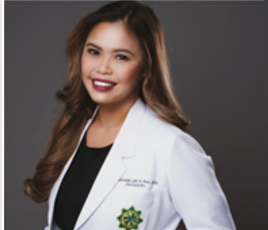Charisse Jae Faa
National Center for Mental Health, Philippines
Attitude, Awareness And Clinical Competency Among Physicians Of The National Center For Mental Health Towards The Lesbian, Gay, Bisexual And Transgender (Lgbt) Community
Biography
Charisse Jae is a graduating Psychiatry resident from the National Center for Mental Health in the Philippines. She earned her Bachelor’s Degree in Nursing from the Adventist University of the Philippines and ranked 3rd on the National Nurse’s Licensure Examination in May 2014. She completed her medical degree at the De La Salle Health and Medical Sciences Institute in 2019. In 2022, she was the champion of the annual Interhospital Case Competition conducted by the Philippine Psychiatric Association. Most recently, she presented a poster at the 2025 HKCPsych International Mental Health Congress, held on June 28 to 29, 2025.
Abstract
Introduction:LGBT
Filipinos continue to face a multitude of minority stressors from society due
to the continuous clash between their values and those of the dominant culture
which contribute to high rates of depression, anxiety and stress. Mental health
requirements of LGBT Filipinos are difficult to address due to the dearth of
service providers who respect SOGIE.
Objective: This
study investigated physicians' clinical competency, attitudes, and awareness
regarding the LGBT community at the National Center for Mental Health (NCMH), a
level 3 special research and training center and hospital in the Philippines.
It aimed to identify the sociodemographic factors influencing these variables
and the relationships between them. NCMH physicians are in a unique position
intervene and enhance subpar mental health outcomes of the LGBT community.
Methods: A
survey-based quantitative methodology was employed using a descriptive
correlational research design. The study included a total of 58 psychiatrists
and 115 medical physicians working at the National Center for Mental Health.
The study assessed physician demographics, training, and their attitude,
awareness, and clinical competency. Participants were recruited through
non-probability convenience sampling based on their available time. Data was
collected through LGBT-DOCSS survey questionnaire.
Results:The
results indicated that years of practice, specialty (psychiatry vs. other
medical fields), and LGBT-related training hours were significantly associated
with differences in physician attitudes, awareness, and preparedness. Younger
physicians, those in psychiatry, and those with more LGBT-related training
demonstrated higher levels of awareness and more favorable attitudes.
Conclusion: The
study concluded that structured LGBT health education in medical curricula and
specialized training programs are essential to improve physician competency and
promote inclusive healthcare practices. Direct patient exposure alone is
insufficient without formal training. The findings highlight the need for
targeted interventions to address gaps in knowledge and promote positive
attitudes towards the LGBT community among healthcare professionals.
 27-29 Oct 2025
27-29 Oct 2025  Bali, Indonesia
Bali, Indonesia  27-29 Oct 2025
27-29 Oct 2025  Bali, Indonesia
Bali, Indonesia 